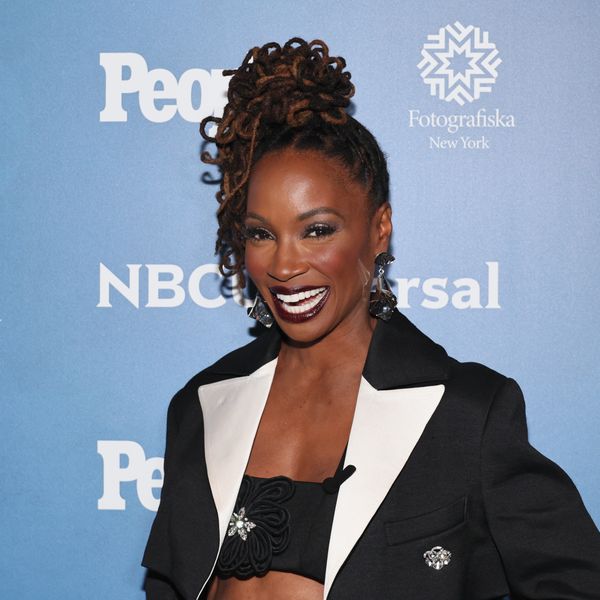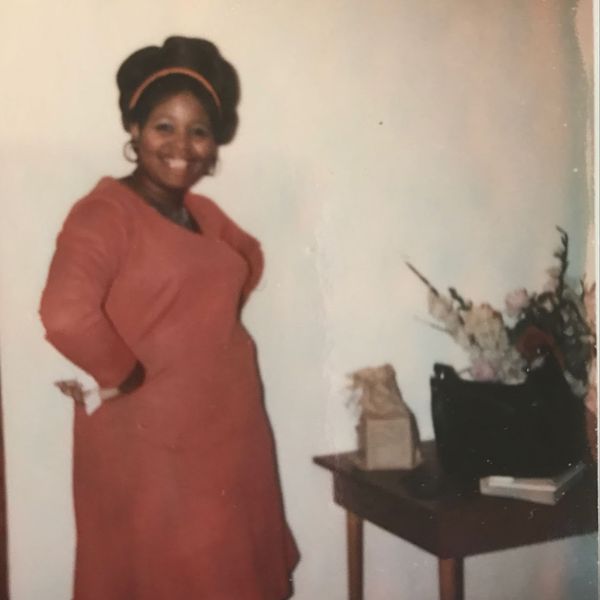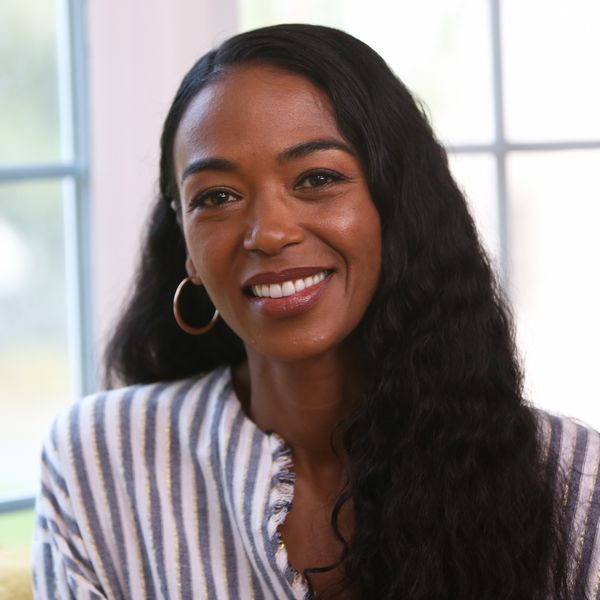
Over the past six months, it felt like life was piling on the toughest lessons it could bring me. For weeks on end, I’d find myself either crying from a new revelation that I discovered about my life or triggered by a disappointment I couldn’t avoid. There were plans deferred, frustrating rejections, and losses that shattered every “plan” I tried to make for myself — leaving me and the hope that I had for my future hanging in the balance.
While there have been previous times when I’ve found myself stuck between a rock and a hard place, this time around was even more unfamiliar than before. At the time, it felt almost impossible to get unstuck from the place and circumstances that I found myself in, and the possibility of gaining clarity seemed hopeless. What I soon came to realize was that I couldn’t change my situation until I put a name to what I was dealing with.
This season of uncertainty I was experiencing is known as a liminal space. This refers to “the place a person is in during a transitional period. It’s a gap that can be physical (like a doorway), emotional (like a breakup), or metaphorical (like a decision).” In my case, it was like life’s waiting room, where you know it’s time for a change, but that change hasn’t quite happened or manifested yet. It’s the in-between time. The middle ground. The “waiting season.”
Through all those months of processing, being in solitude, crying, and journaling until the pages caught fire, I had no idea that there was actual language to what I was living. I just assumed it was some sort of mid-mid-life crisis coupled with the final stages of my Saturn Return. But it wasn’t until I listened to an episode of The Soft Life by Saddie Baddies Podcast that I could finally put words to what I was experiencing all this time.
According to Priscilla O. Agyeman, MPH, public health professional and founder of the digital platform Saddie Baddies™, a liminal space is “the space between what was and what could be. It’s anywhere that's in between two stationary spaces,” she tells xoNecole. “On a deeper, more personal level, a liminal space can be something like a divorce, having to make a heavy decision where you're between two options, or moving to another location.”
Emotional liminal spaces can also look like a job loss, getting engaged or married, a long-term situationship ending, a romantic or friendship breakup, rejection, losing a spark of creative interest, rejection, or simply adulting.
For Priscilla, the concept of home and relocation had been a reoccurring theme when it came to liminal spaces. Specifically in 2020, where during the height of the pandemic, her landlord decided to abruptly end her lease two months early. “I remember my soul just feeling so depleted and tired. I literally had a nervous breakdown because I was like, how can you do this in the middle of a pandemic? How can you be so inconsiderate?” she shares.
That time of unsteadiness showed Priscilla the power of asking for help during the toughest moments of her liminal space, and she was soon able to leverage the support of a close friend to find a new but temporary place to live.
There she began to reintroduce herself to grounding practices that allowed her to get back in touch with herself. “I had to make really big behavioral changes. If not, I was going to slowly lose my sense of self because everything that I was working towards in terms of having my own space was stripped of me,” she says. “But in that liminal space, I got some major roots that developed my resilience, my character, and able to handle life's curve balls.”
During that time of her navigating the liminal space of moving, Priscilla recalls the inner mantras that anchored her while not losing sight of what was to come. “I had to keep reminding myself to stay present because if I focused too much on the past or too much on the future, I’d feel so much stress internally,” she shares. “Meditation helped me to quiet down the noise of worrying about the future and focus on the present moment and what was in front of me.”
“[What] I had to use was just to remind myself that this is temporary. You are doing exactly what you need to do in this moment. Everything is aligning perfectly for you. Really just affirming myself because if I didn't do that, I was really going to let my environment take over what I was feeling,” she continues. “Instead, I wanted to change the narrative. I wanted to flip the switch and learn how to adapt.”
Getting Unstuck From Your Liminal Space
When working to get unstuck from your liminal space, there is a delicate balance between planning for what you desire while remaining present in uncovering what this time is trying to teach you. One tip that Priscilla speaks to in doing so is the importance of creating an exit strategy. “An exit strategy is your plan to get out of a situation or environment that's no longer serving you,” she says. “In between the problem and the solution is a strategy. What's going to get you between point A and point B?”
When creating your exit strategy, consider the following:
1. Know Your Threshold and Make a Deadline:
“What is an action item that you can take to get yourself out of this situation? When it came to my living situation, I knew that I couldn't stay for more than six months. I knew that there was a threshold that I could tolerate as someone with specific needs for my home environment. I had to find a solution that was going to be easy for me to transition into and that could be more long-term.”
2. Get Clarity and Don’t Move Out Of Desperation:
“It's really about simplifying the process, taking a time to step back from the situation, and motivating yourself because you want to get out of this space. But doing it in a way that does not move out of desperation. Be diligent and strategic. You don’t want to get yourself back into another shitty situation. Take a step back and reevaluate what is actually going on with you and what's going to be the desired outcome.”
3. Embrace the Quiet Moments:
“If you want to discover what your liminal space is trying to teach you, the first thing is having some quiet time. When I came to those moments of clarity, before I was able to develop a strategy or do anything, I had to have quiet time. For me, that's going on a walk, being outside, figuring out what it is that I'm currently feeling, and then letting those emotions come up.”
4. Talk to Someone You Trust:
“Talk about it with someone you trust. It doesn't need to be your entire Instagram feed. But I think finding at least one or two people in your corner that you can talk to, whether it's a friend, whether it's your partner, whether it's a family member, whoever, just talk to a therapist. Obviously, talking to somebody who can really help you to see another perspective because they might also have solutions. They might also be able to offer help.
5. Be Observant:
“If you really want to see what your liminal space is teaching you, be observant. For example, if you've been itching to move to a new city, have you been seeing signs that this is a place where you could thrive? Being observant requires you to be present. So what are the things that you have been seeing repeatedly, whether it's actually seeing them or having recurring dreams, thoughts, or people mentioning certain things in passing? A lot of times that could be God showing up in ways that you may not have even noticed.”
Having been in a liminal space myself, I can attest to how challenging it can be to stay encouraged and motivated when you’re unsure of when your number will be called from life’s waiting room. It can have an impact on your mental health and become emotionally and physically taxing. But in order to get to the other side, you have to lean into that discomfort and receive the lesson that life earnestly wants to teach you through this liminal space. Because it’s not happening to you, it's happening for you.
“See the possibilities. I tend to say that this is proof of concept that good things can happen and that better things are on the other side,” Priscilla says. “When you look at your life, where have you been stuck and gotten yourself unstuck? That's proof of concept. That's proof that you are able to get out of it,” she says.
“Look at your own experiences as data, proving to yourself that I've gotten out of this before, and I know I'll get out of this too.”
Let’s make things inbox official! Sign up for the xoNecole newsletter for daily love, wellness, career, and exclusive content delivered straight to your inbox.
Feature image by Martin Novak/ Getty Images
Aley Arion is a writer and digital storyteller from the South, currently living in sunny Los Angeles. Her site, yagirlaley.com, serves as a digital diary to document personal essays, cultural commentary, and her insights into the Black Millennial experience. Follow her at @yagirlaley on all platforms!
There’s just something about HBCU Homecoming that just hits different. Whether it’s your first time stepping onto the yard since graduation or you’re a regular at every Homecoming tailgate, HBCU pride is undeniable. It’s a vibrant celebration that unites the legacy of excellence and tradition with the energy and resilience of Black culture.
The experience goes beyond a typical college reunion; HBCU Homecoming is a family reunion, a fashion show, a cultural festival, and a week-long turn-up that embodies what it means to be unapologetically Black and educated. For HBCU alumni, the journey back to the yard each year is rooted in a love and pride that’s hard to put into words but impossible to deny.
From statement pieces to tech must-haves, every item represents the intersection of Black pride and HBCU love, ensuring that you show up to the yard in style and with intention. So whether you’re repping your alma mater for the first time since graduation or looking for fresh pieces to express your HBCU pride, these essentials will have you standing out, because, at HBCU Homecoming, it’s not just about showing up—it’s about showing out.
Thread Goals
diarrablu Jant Pants in Alia Noir

High-waisted, wide-legged, and ready to shut down the yard, the Jant Pants by diarrablu bring a whole new meaning to campus chic. Handcrafted in Dakar, Senegal, these free-flowing jacquard pants are perfect for stepping onto the yard with style and ease—making them a must-have for any HBCU alum’s closet.
Silver & Riley Convertible Executive Leather Bag Classic Size in Olive

This all-in-one luxury bag isn’t a bestseller for nothing. The Silver & Riley essential is made of Italian calfskin leather and thoughtfully designed, as it can be worn in four different ways: a shoulder bag, crossbody, a top handle, and a backpack. Chic and elegant, the Convertible Executive Leather bag is “the bag that every woman needs in her collection.”
Renowned Women's Intuition Cotton Graphic T-Shirt

Renowned
Renowned’s Women’s Intuition Cotton Graphic T-shirt features a bold graphic print inspired by the power and essence of women’s intuition. With its striking design, this all-cotton tee is a vibrant thing, making it a statement piece that celebrates feminine energy.
Mifland Million M Mesh Crop Shirt

Talk about bold, the Million M Mesh Crop Shirt combines edgy style with comfort, featuring Mifland’s signature print on a semi-see-through mesh fabric. Show up and show out in sophisticated flair.
HBCU Love FUBU
Melanin Is Life Melanated & Educated - I Love My HBCU Hoodie

Show off your HBCU love with this piece that represents everything you gained from your alma mater: a top-tier education, a community that lifts you up, and a deep sense of esteem for yourself and your culture. Wear it loud and proud, because being melanated and educated isn’t just a flex—it’s a legacy.
HBCU Culture Spelmanite Sweatshirt in Navy

Spelmanites, rep your Spelman pride with this unisex crewneck sweatshirt, designed for ultimate comfort and a relaxed fit. Made from a cozy cotton/polyester blend, this classic sweatshirt is as durable as it is stylish—making it an ideal piece for any Spelmanite showing love for their alma mater.
HBCU Culture Howard Is The Culture T-Shirt

Rock the ultimate flex by showcasing your Howard U love with HBCU Culture’s Howard Is The Culture t-shirt. This unisex tee offers a comfortable, relaxed fit that’s perfect for celebrating your HBCU spirit without sacrificing style or comfort.
DungeonForward FAMU - Strike Bucket - Reversible

DungeonForward’s Strike Bucket Hat brings versatility and style to the FAMU Crown collection with its reversible design, giving you two looks in one. Featuring a sleek black snakeskin-embossed brim lining and a bold outline Rattler emblem, this hat is all about repping your Rattler pride in style.
DungeonForward Savannah State University - HBCU Hat - TheYard

The Savannah State University HBCU Hat by DungeonForward is more than just a hat—it’s a symbol of Tiger pride and a nod to the culture. Perfect for gamedays, tailgates, or just showing off your HBCU love, this hat lets you carry a piece of the yard wherever you go.
Tech the Halls
Anker iPhone 16 Portable Charger, Nano Power Bank

Stay charged up with the Anker Nano Power Bank, which features dual USB-C ports, a foldable connector, and a compact design, making it perfect for those HBCU tailgates and late-night parties you pull up to.
Drip Check
Wisdom Frame 14 Square Sunglasses

Elevate your look with these angular square-frame sunglasses by Wisdom, bringing an ultramodern edge to any outfit. The sleek design makes them perfect for blocking out the haters while you stunt on the yard.
Coco and Breezy Eyewear Fortune in Gray Turquoise

The Fortune Glasses in Grey Turquoise is a bold statement piece to any Homecoming weekend ‘fit that “embody our fearless and outspoken DNA.” With their color and edgy design, these frames by Coco and Breezy are perfect for anyone looking to stand out and express their unapologetic confidence.
Howard U Lapel Pin

Rep your Bison pride wherever you go with this Howard U Lapel Pin from Pretty AmbVision. Whether adding it to your jacket, shirt, or bag, this pin is the perfect way to showcase your love for your alma mater while rocking your HBCU love with honor and distinction.
Mifland Standard Rucksack Mini

The Standard Rucksack is designed to evolve like that HBCU pride—getting richer, bolder, and better with time. Durable, stylish, and built to last, this Rucksack by Mifland is a timeless piece equipped with versatile carrying options and fully adjustable back straps for ultimate comfort.
Stay Fresh, Stay Blessed
Slip Pure Silk Sleep Mask in Pink

Keeping it cute starts with beauty sleep. This luxurious silk mask is an essential for a reason. If protecting your skin and waking up refreshed is your priority, look no further than this Homecoming essential.
Liquid I.V.® Hydration Multiplier Lemon Lime - Hydration Powder Packets

Stay hydrated and energized throughout Homecoming weekend with this Liquid I.V.® Hydration Multiplier in Lemon Lime. Just add a packet to your water bottle, and bless your body with 2-3 times more hydration than water with every packet. Because staying hydrated is the key to popping up and showing out all weekend long!
Loop Experience Plus Earplugs High Fidelity Hearing Protection

Designed for your hearing protection, these sleek earplugs reduce noise without compromising sound quality—perfect for enjoying the band’s halftime show, late-night parties, and DJ sets. Whether you’re front row at the step show or hitting the yard, your ears deserve to be protected in style!
Black Girl Magic Glass Cup

Sip in style and celebrate your melanin with the Black Girl Magic Glass Cup. Perfect for morning coffee, your favorite iced drink, or showing off your HBCU pride on the yard—this cup is all about keeping it cute while radiating your endless supply of Black Girl Magic.
Glow Up & Show Out
Black Girl Sunscreen SPF 30

What Homecoming weekend can be complete without an assist from this beauty find? Formulated to blend seamlessly into melanin-rich skin (no white-cast), protect your glow while you turn up with the Black Girl Sunscreen SPF 30.
Sienna Naturals Issa Rae's Wash Day Ritual Set

Issa Rae’s Wash Day Ritual Set from Sienna Naturals includes the H.A.PI. Shampoo, the Plant Power Repair Mask, Dew Magic, and Lock and Seal to get your crown right. Whether you’re repping your coils or rocking a new color on the yard, these products restore and nourish your strands, keeping your hair healthy, strong, and Homecoming-ready!
54 Thrones Ivorian Cocoa + Ghanaian Coconut Beauty Butter

Stay glowing from the tailgate to the after-party with the 54 Thrones Ivorian Cocoa + Ghanaian Coconut Beauty Butter. Infused with African-sourced ingredients, this rich, multi-purpose butter is the answer to keeping your skin soft and radiant through all the festivities all Homecoming long.
Saie Glossybounce Hydrating Lip Oil

Keep your lips looking luscious and nourished with the Saie Glossybounce Hydrating Lip Oil. Perfect for adding an extra pop to your pout before hitting the yard or freshening up between events, this lip oil is a beauty essential for staying camera-ready all weekend.
Join us in celebrating HBCU excellence! Check out our Best In Class hub for inspiring stories, empowering resources, and everything you need to embrace the HBCU experience.
Featured image by Visual Vic/Getty Images
From A Teenage Crush To A Power Couple, These Lovebirds Share Their Fascinating Story
A few months ago, I had the absolute pleasure of chatting with Jenna Nia and Donay of the Love and Fly Shit podcast. And let me tell you, they made me a fan. Since this conversation, I’ve been tuned into their content and have made watching their podcast a part of my weekly unwind. Wondering why? It’s because the power couple has a confidence that draws you in and an authenticity that feels familiar.
Now, if you’re wondering why they look so familiar, it could be for a bunch of reasons. Jenna Nia is a fashion designer who has styled many of our favorite celebs, like Keke Palmer, Normani, Mel B, and more. Also, she previously appeared on BET’s College Hill: Interns and even made appearances in a few music videos back in the day. But now, she’s immersed herself in the world of business and media.
Donay is an entrepreneur with 10+ years of experience in various industries. However, while balancing his work life, the businessman still maintains a healthy balance with fitness, fashion – and, of course, family that he shares online. It’s clear the pair takes their work and passion seriously. But from this convo it’s clear that they took their union even more seriously. Check out xoNecole’s exclusive conversation with the beautiful couple below.

Jenna Nia and Donay
Courtesy
xoNecole: Let’s start off by you both telling me a little bit about yourselves.
Jenna Nia: I’m Jenna Nia. I just turned 39 in July, and I am from St. Louis, Missouri.
Donay: I’m Donay. I’m 39 years old and I’m also from St. Louis, Missouri, but we’ve been living in Atlanta for quite some time.
xoN: Oh, okay, you’re both from the same area! Is that how y'all met?
Jenna Nia: Yes, we actually met in high school at about 15. We didn’t go to the same school, but we had a lot of mutual friends. We used to see each other often because of our different circles of friends, and I had the biggest crush on him. I thought he was so kind, funny, and he had his own little car (laughs). But I had a lot of friends that had little “situations” with him. Plus, he had a girlfriend. So we never really hooked up then.
Donay: But I’d say we knew we liked each other. We were always looking at each other and playing games.
Jenna Nia: He didn’t give me any real attention though –
Donay: I paid her attention. But she had a boyfriend; it didn’t mean anything to me. I still checked her out, but she didn’t really take me seriously until around 18.
Jenna Nia: Then I realized all he wanted to do was smash and be a horny little boy. So we ended up reconnecting when I was around 25.
xoN: Wait, so how did it progress to what we see today?
Jenna Nia: I moved away, went to college, moved to Atlanta, and then came back to St. Louis for a holiday break. We ended up rekindling through the same mutual friends. We were all hanging out over someone’s house. The chemistry was natural, and we hooked up. Two weeks later, I ended up dumping my boyfriend at the time; we were engaged a few years later, and here we are – still together.
Donay: That’s it. She laid it out perfectly.
"We were all hanging out over someone’s house. The chemistry was natural, and we hooked up. Two weeks later, I ended up dumping my boyfriend at the time; we were engaged a few years later, and here we are – still together."
xoN: I love stories when stories end like that. But let’s back up a bit. Take me through the process. After reconnecting, how did things blossom? Did y’all have the “what are we” conversation? How did it develop from an attraction to a relationship? Talk to me about the courtship.
Donay: We were talking on the phone every day. Those phone conversations got deep, fast. We were long distance, but I was phoning her in the morning, calling her baby - all the things. I was trying to charm her. And a few weeks later, I was saying, ‘I love you.’

Jenna Nia and Donay
Courtesy
xoN: I’m hearing that more and more, actually. Sometimes what’s understood doesn’t have to be explained! What did being in such a serious relationship teach you?
Jenna Nia: I learned there was only one man who could make me want to be with him for the rest of my life. I realized it’s possible to be crazy in love and not have to weigh options.
xoN: What was it that he did to make you feel like that?
Jenna Nia: It was the chemistry, it was like magic. It was a feeling. It wasn’t even anything he did. Honestly, we had a rocky start. You know how it is, they charm you but then you start finding out all kinda other stuff.
We had infidelity issues when we were young. So logically, I wanted to leave him alone, but my heart and mind just wouldn’t allow me to. Once there was nothing I could do to stop being crazy about him – I knew.
xoN: And what was it for you, Donay?
Donay: It was from spending time with her. I just knew. I literally didn’t like when she wasn’t in my presence. I knew she was my wife.
"It was from spending time with her. I just knew. I literally didn’t like when she wasn’t in my presence. I knew she was my wife."
xoN: Okay, so you spoke a little bit about infidelity. What were some of your biggest challenges, and how did you navigate them?
Jenna Nia: He still doesn’t claim it, but I feel like he had a whole relationship he never told me about when we first got together. But we were only 25, and it was before we got married. It was him learning to be with one woman and in a serious relationship – it was truly growing pains.
Donay: Like I’ve told her before, I was young and knew I was playing with something serious. I knew how real she was and that what we had wasn’t something I could just find again.
xoN: You mentioned family, what are some of your other shared values?
Donay: I’d have to say our lifestyle.
Jenna Nia: That’s really the best way to sum it up. We both have the same craving for nice things, luxury, and financial freedom. When it comes to how we want to live our life, we’re both action-oriented and proactive to obtain that lifestyle.
xoN: This is everything. But I mean, do y’all fight? What are some of the things you argue over?
Donay: (Laughs) We both are very strong-minded.
Jenna Nia: We fight the most over business. We own our businesses together, and there's so many moving parts. Sometimes, we don’t agree over stuff or have different approaches. We don’t really have outside problems, though.
xoN: Finally, I’ll close with this. What are your favorite things about each other?
Jenna Nia: There’s a lot of things. He’s very much my eye candy. He’s a super Dad. He’s with the boys more than me. But overall, it’s his perspective on life. He’s extremely smart, but he also combines it with action. He’s going to make it happen. Everyone doesn’t always understand people who go that hard, but I do. It’s very sexy and makes me feel safe and protected.
Donay: First of all, she’s fine and beautiful; I can’t keep my hands off of her. But outside of that, it’s her mind, ambition, hustle, strength, and the way she thinks. I respect her mind so much. You don’t meet many people with a mind like hers.
Let’s make things inbox official! Sign up for the xoNecole newsletter for love, wellness, career, and exclusive content delivered straight to your inbox.
Feature image courtesy









